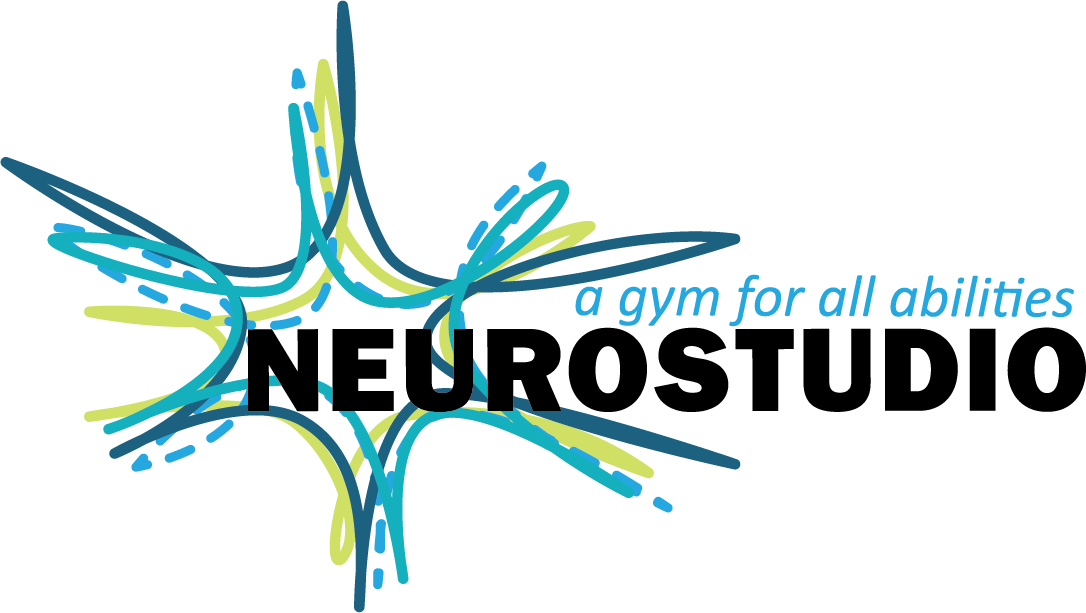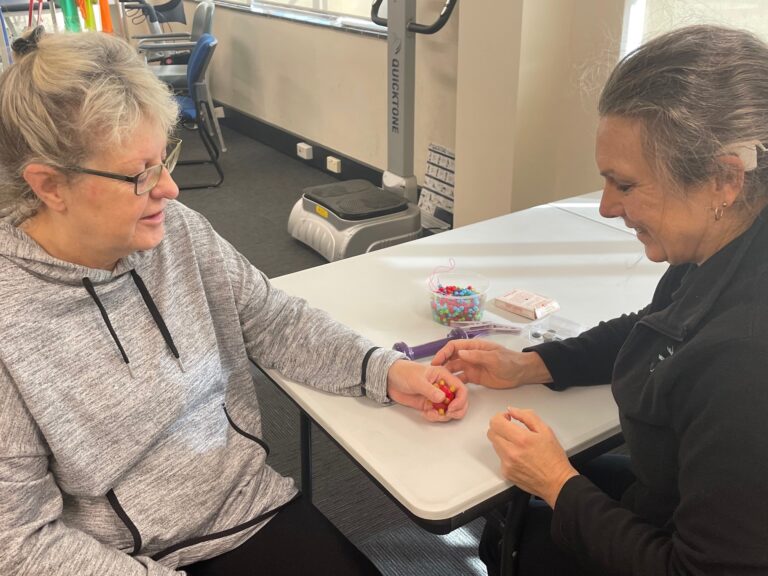
Ageing brings changes to every body system. And it starts to happen noticeably after turning 50 – which is when we may have already substantially slowed down with desk jobs, raising families, injuries or other health issues. This can be negated by maintaining a healthy lifestyle approach to movement, exercise and food intake.
A part of this is addressing quickly any injuries that occur along the life journey and having regular tune ups to check the body parts in good shape (just like the car!).
Balance deterioration occurs with changes in any sensory system (the feeling in our feet, joints, eyes, ears) and weakness in any part of the body, particularly the legs and trunk. Subtle changes turn into big changes as the body cleverly substitutes and adapts. We seek to catch those changes early, and keep you on track, to have a healthy active life.
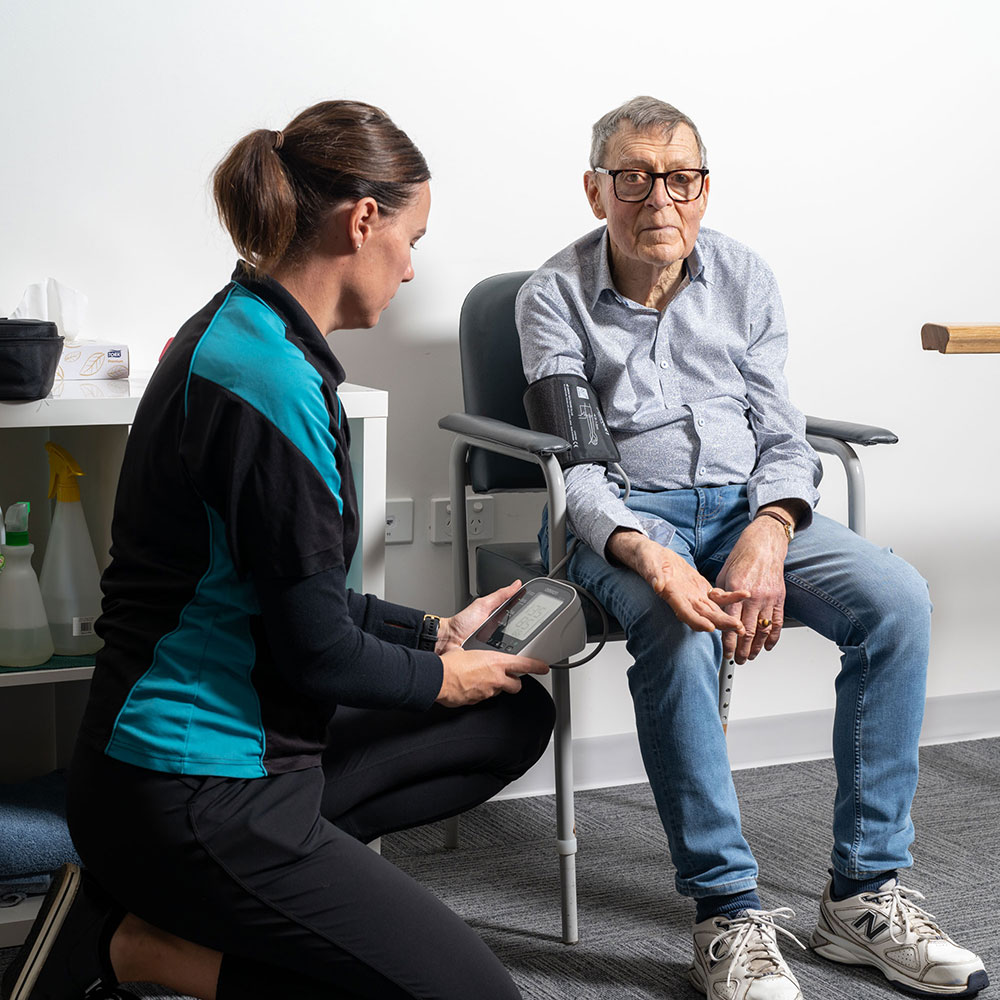
We are in the decade of healthy ageing 2020-2030 and definitely a buzz word recognising that we have a larger portion of our population that are getting older and people deserve to be treated well through their older years and continue to live life to the fullest.
The World Health Organization (WHO) define healthy ageing as the process of developing and maintaining the functional ability that enables wellbeing in older age. The functional ability is seen across 5 areas:
For NeuroStudio we are focused on the mobility side of things – which actually contribute to all the other factors of functional ability, and allow better participation in every day life

Health services are generally directed towards dealing with acute conditions and often focused on one segment of the body. With advancing age, health problems become chronic and the coexistence of many ailments and diseases is common. As people age, physical, sensory and cognitive impairments are more prevalent and associated with disorders such as incontinence, frailty and increased risk of falling.
The older person can be complex to assess and getting good quality care that is accessible in space, timeliness and frequency required is challenging. The capacity to work with a person who moves and thinks a bit slower can also be a challenge to the overstretched health system. Access to a breadth of treatment approaches and skills can be important to getting the best outcome.
Healthcare should include consideration of prevention, promotion, treatment, rehabilitation. All theses are considered at Neurostudio. There are two other stages to consider, palliative and end-of-life needs, which we are able to support in Neurospace.
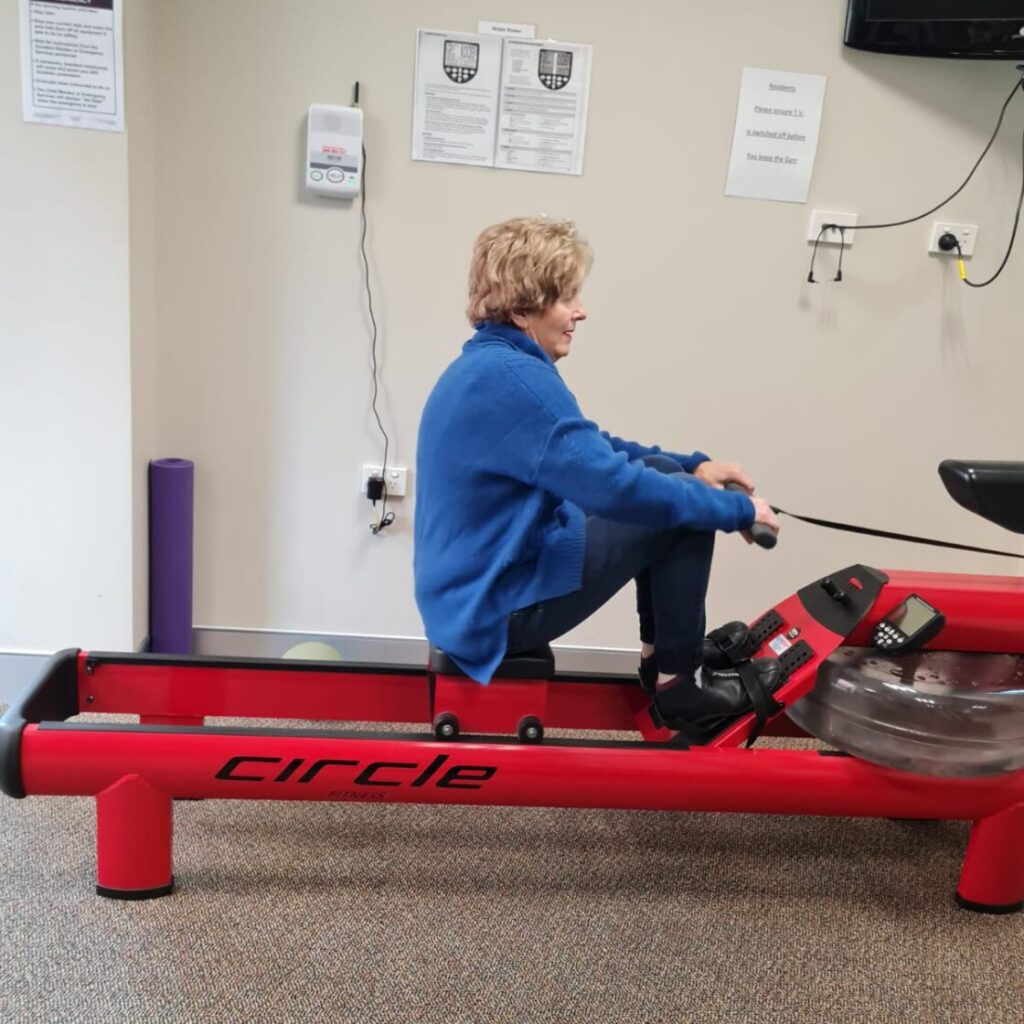
NeuroStudio provides the opportunity to be assessed holistically and get the right program for you and the level of mobility you are at
The equipment is and room design is for people with a range of abilities. Your budget for investing in your rehabilitation is also considered with different levels of support provided.
Programs are designed across a spectrum of health experiences including our “Get Fit to Retire “ package through to the balance program.
Team approach to care The team in the studio comprises Exercise Physiologists, Physiotherapists, and allied health assistants.
The roles do blur, and in general the physiotherapist tends to help set up the programs for people with less mobility , or help differentiate the health issues; while the exercise physiologist is progressing all the programs and particularly focused on strength, fitness and integration into more mobility tasks. The AHAs are supporting you where you need assistance with exercises, but little exercise correction or progression.
The programs extend out into the community via links with Neurospace, home visits and hydrotherapy.
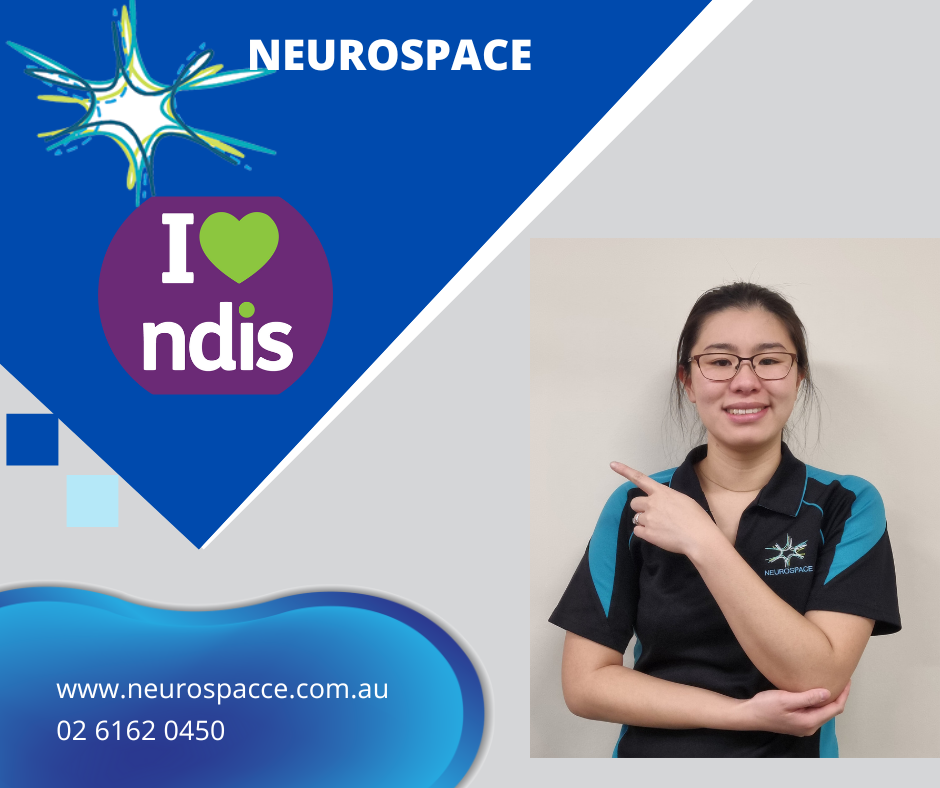
Pain is a signal that something is not right. Pain can cause a substantial loss in mobility. Pain does not have to be part of getting older. Do get your body pain investigated , and if it is a pain in the muscles and joints, getting a tune up to help you get things aligned better and the right exercises can have a huge impact in improving life for you.
There is increasing evidence that joint surgery can be avoided, or at least delayed with early intervention with the right exercises.
References
Refs Ofori- Asenso et al 2020 The Frequency of, and Factors Associated with Prolonged Hospitalization: A Multicentre Study in Victoria, Australia
Arora A. 2019 Preventable harm: getting the measure right
https://www.who.int/philippines/news/q-a-detail/healthy-ageing-and-functional-ability
Neurospace Clinic: 8-5 Mon, Wed, Fri 8-6 Tue, Thu
NeuroStudio: 8-5 Mon 8-5:30 Tue, Wed, Thu 7:30-4:30 Fri
Yes we provide services for people with an insurance claim for their injury. We are often chosen to help solve complex or long standing cases. To be eligible to claim on your insurance, we require the following:
We need to get preapproval for the initial assessment before the first consultation and defined number of sessions.
Please note that all claims are subject to approval by the insurance company. If the insurer or Comcare does not agree to Neurospace’s full fees then you are required to pay the gap and seek direct reimbursement from the insurer. For example, the insurance company may only pay for a 20 minute consult when Neurospace treats standardly for a minimum of 30 minutes.
Neurospace is a registered provider with the National Disability Insurance Scheme, the NDIS. We offer services in Physiotherapy, Exercise Physiology and allied health assistant.
If you have a plan already in place, please call to discuss how Neurospace can work with you to reach your goals. If you are still in the planning stages, we can also discuss what services are available in the community that may be of benefit to you.
As a registered provider, we can bill directly to the NDIS for your services or you can chose to self-manage your plan or have someone manage your plan for you. We also work closely with other providers to provide you with the best care.
We offer services as home visits, community visits ( somewhere not your home) and at the pool. There is an additional charge for these due to the extra time required to travel to a home or care facility. Please contact us to discuss external visits in greater detail.
We offer telehealth using a range of ‘video’ communications to assess and manage you online. Our telehealth charges are the same as if you were in the rooms.
Physiotherapists and Exercise Physiologists work together, complementing each other’s work. Everyone can benefit from a physiotherapy or exercise physiology session of a comprehensive movement / fitness check up. Often we are not aware that something is changing in our bodies until pain and reduced function scream out at us to get in checked. You do not need a doctors referral to seek an answer from us, and if you need a doctor we will refer you on with a detailed letter.
The physiotherapy and exercise physiology we offer at Neurospace is particularly targeted at long standing and difficult problems. We place emphasis on clients gaining quality of life and meaning from our therapy. See our Fit to Retire package to get a start on making a difference in your quality of life.
Neurospace has a special interest in helping people with movement problems due to damage to the nervous and/or sensory systems. Our approach has been developed by a lifetime of work by our principal therapist Deborah Carrera and there is systematic training approach to ensure all the team understand this. We apply a holistic approach that seek to assess the underlying impairments and understand how these impact the way you move. We develop and progress the treatment plan addressing both the impairments and retraining the way you move.
In addition, we apply this holistic approach to issues such as joint pain, sporting injuries , and post surgery rehabilitation. We like to think we can help anyone, but if we don’t think we are the right place for you , we let you know and refer you onto a place that can help you.
Excellent professional staff and service, very friendly and supportive. Highly recommend.
Jackie Neill
I have been going to Neurospace Physiotherapy for the last two weeks and I am so happy with the service that they have been able to provide to me. The staff are incredibly welcoming and helpful and they have been able to help me immensely. I highly recommend this service!
Ally Gould
Best physio to go to, the staff are helpful and caring.
Sammy Rose




